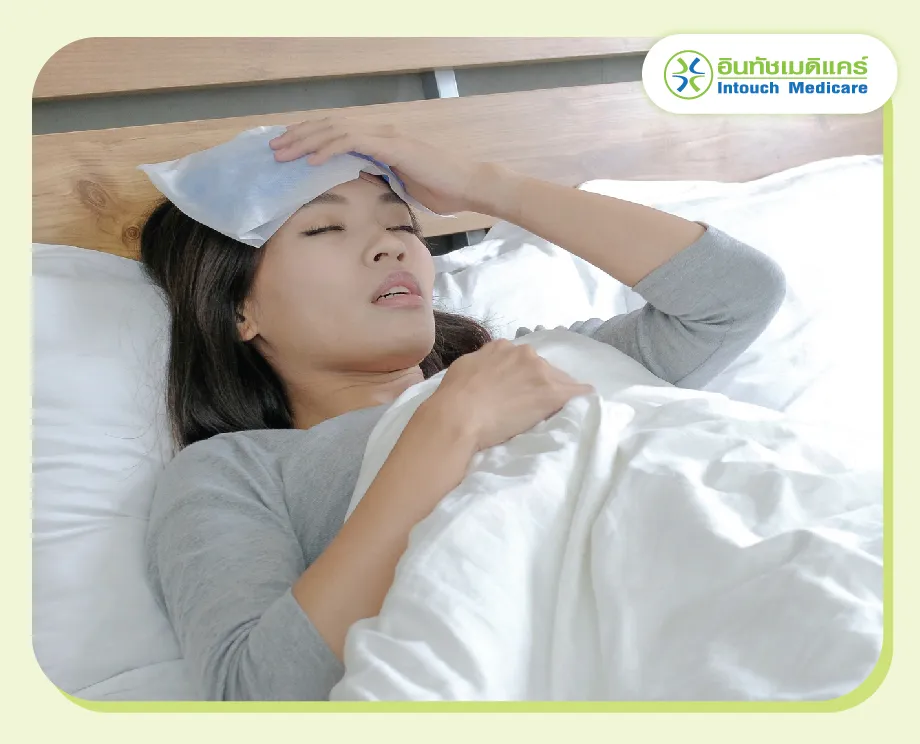Effective Flu Treatment for a Faster Recovery and Prevention Methods

Simple Ways to Treat the Flu for a Faster Recovery. In many cases, the flu can naturally improve without medical intervention. If the symptoms are mild, home care is often sufficient. Preventing the flu is also relatively easy to manage.
Interesting Topics:
How to Recover from the Flu Faster
Get plenty of rest.
Getting as much rest as possible is one of the best ways to recover quickly from the flu. Sleep is crucial because it is the best medicine for the body to alleviate fatigue caused by fever. If you find yourself getting bored with resting, you can get up for a short walk or to breathe in some fresh air.

However, you should avoid watching TV or staring at your smartphone while resting, as this means your body is not fully resting.
Rest and adequate sleep also help reduce the risk of severe complications from flu, such as pneumonia.
If you have severe symptoms or are at risk of complications, it's important to see a doctor as soon as possible.
Eat nutritious foods.
To recover from the flu more quickly, focus on consuming healthy foods that aid in the body's recovery. Choose warm, well-cooked meals, use serving spoons, and include foods rich in vitamin C, such as guavas, apples, or berries, to enhance your immune system and support a stronger recovery.
|
Avoid Certain Foods
Avoid chocolate, cake, and ice cream because their high sugar content can reduce your body’s ability to combat infections. Also, stay away from fried foods, as they can aggravate coughing.

Take Medication as Prescribed
It’s important to follow your doctor’s instructions for taking medication, as it’s a key method for recovering from the flu quickly. Adhere strictly to the timing and dosage as prescribed to speed up your recovery.
Certain medications may be antibiotics or flu antiviral drugs that need to be taken in the exact amounts and at the specified times as directed by your doctor.
Failing to do so could lead to drug resistance or reduced effectiveness in future treatments, as well as increase the risk of side effects.
![]()
Following your doctor’s instructions helps
minimize these risks. ![]()
![]()
Drink More Fluids
Drinking more fluids helps flush out toxins and lower body temperature. Aim to drink plenty of water and avoid cold beverages. Warm water is preferable as it helps maintain body warmth, reduces fever, and replenishes fluids lost due to high temperatures.
Drinking water also helps keep your nose, mouth, and throat moist, and aids in clearing mucus from your throat.![]()
Wipe Down to Reduce Fever
Another essential method for quickly recovering from the flu is to wipe down to reduce fever. Use a cloth soaked in warm water, wrung out so it’s damp, and apply it to the forehead and chest. Wipe from the extremities (hands and feet) towards the center of the body to help dissipate heat.
Be sure to wipe areas such as the bends of the arms and legs, the neck, armpits, and groin, or any areas with significant blood flow.
|
If someone with a high fever experiences shivering while wiping down, stop immediately. Continuing could cause the fever to rise even higher.

Wear Breathable Clothing
After drying off, wear comfortable, lightweight clothing that allows for good air circulation. This helps the body release heat more effectively.
Avoid Leaving the House
People with the flu should take time off work, and children or students should stay home from school to rest and recover more quickly. The body needs time and energy to fight the flu virus, and staying home helps with recovery.
Additionally, staying at home reduces the risk of spreading the virus to others. When at home with family, patients should wear a face mask at all times.
If you have the flu and don’t see improvement with home treatment, we recommend visiting a clinic.
Intouch Medicare provides medical care with doctors and nurses on duty during all operating hours, treating both children and adults. Our approachable staff is here to assist and offer guidance.

Preventing the Flu
Wash your hands frequently and use soap each time to keep them clean.
Get a flu vaccine annually, starting from six months of age.
Avoid close contact with individuals showing flu symptoms.
Maintain good health by eating nutritious foods, getting enough rest, and exercising regularly.
Do not share personal items with others.
What to Avoid When You Have the Flu
While recovering from the flu, it's important to eat a balanced diet with all essential food groups and drink plenty of water. Avoid consuming alcoholic beverages, tea, and coffee, as alcohol and caffeine can dehydrate the body, increasing the risk of dehydration and mineral deficiencies.
|
For more info and make appointment
Hot Line 081-562-7722
Composer: Warangkana Wiwansirikul, MD
Last edited : 16/09/2024
Images may be used without prior permission exclusively for educational or informational purposes, as long as proper credit is given to intouchmedicare.com


